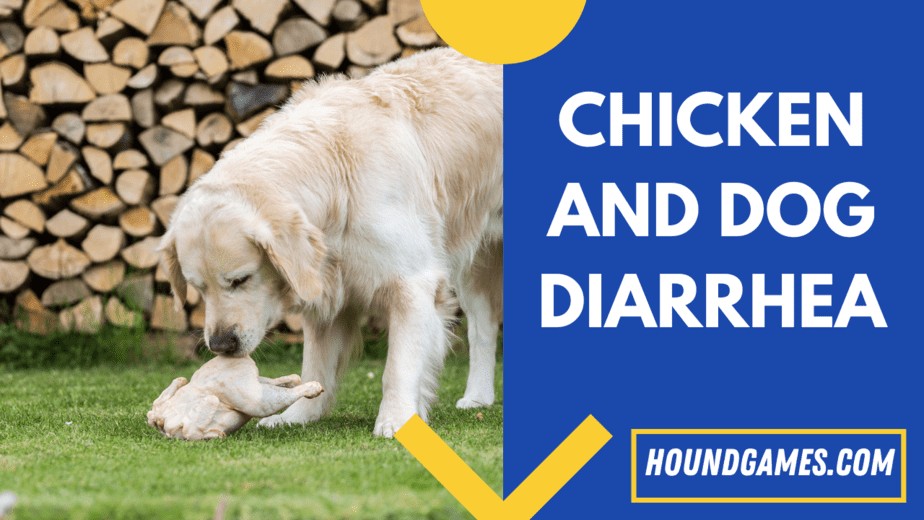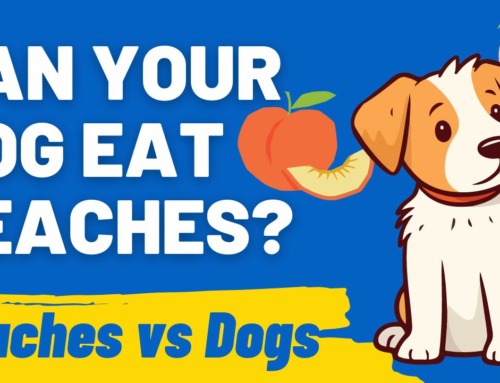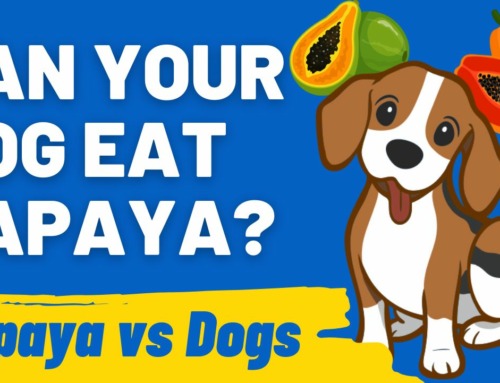Most dogs love chicken, and owners are generally willing to oblige. Some may be using chicken simply as a treat or a training aid, or giving our dogs table scraps from the Sunday roast. Some owners are feeding a chicken-based commercial dog food diet, or chicken in a raw food diet. But can chicken give your dog diarrhea? In this post, we answer your questions about chicken and dog diarrhea.
Can chicken give my dog diarrhea?
Yes, chicken can give your dog diarrhea. The number one reason this may happen is that chicken is one of the most common food allergens in dogs. In one study, around 60% of dogs with a food allergy are allergic to chicken. Chicken can also give your dog diarrhea if they are not used to eating it.
Some dogs simply have sensitive stomachs and strong reactions to unfamiliar food, so they should always be given changes to their diet in tiny amounts first.
Other reasons why chicken could give your dog diarrhea include the preservatives used. Some human-grade preservatives such as sulfates or sulfites can cause massive health issues, such as a deadly thiamine deficiency. Frozen chicken injected with brine can also cause diarrhea.
Spices, marinades, or sauces on top of chicken from table scraps may also be the real culprit behind a dog’s upset tummy. If you feed chicken, always make sure it is clean and free of any additives.
Unbalanced, homemade chicken meat diets are also associated with diarrhea. A collection of studies on meat-only diets, including chicken, showed a tendency toward diarrhea and other deficiencies. It’s not clear why it causes diarrhea, but it seems all meat diets may lack the necessary fiber for a healthy gut.
Finally, chicken can cause diarrhea through contamination of pathogens like Salmonella and other bacteria that chicken is very vulnerable to. This could be through processing problems in commercial dog food that is sometimes contaminated (and usually causes recalls) or from unhygienic handling practices at home or at the butcher.
In these cases, it’s essential to be careful because Salmonella poisoning transfers easily from dogs to humans through unconscious contact with feces, such as when cleaning diarrhea.
If your dog has a sensitive stomach, then a fresh food service like PetPlate can help. You can read more about this service in our post, PetPlate: Should You Use It?
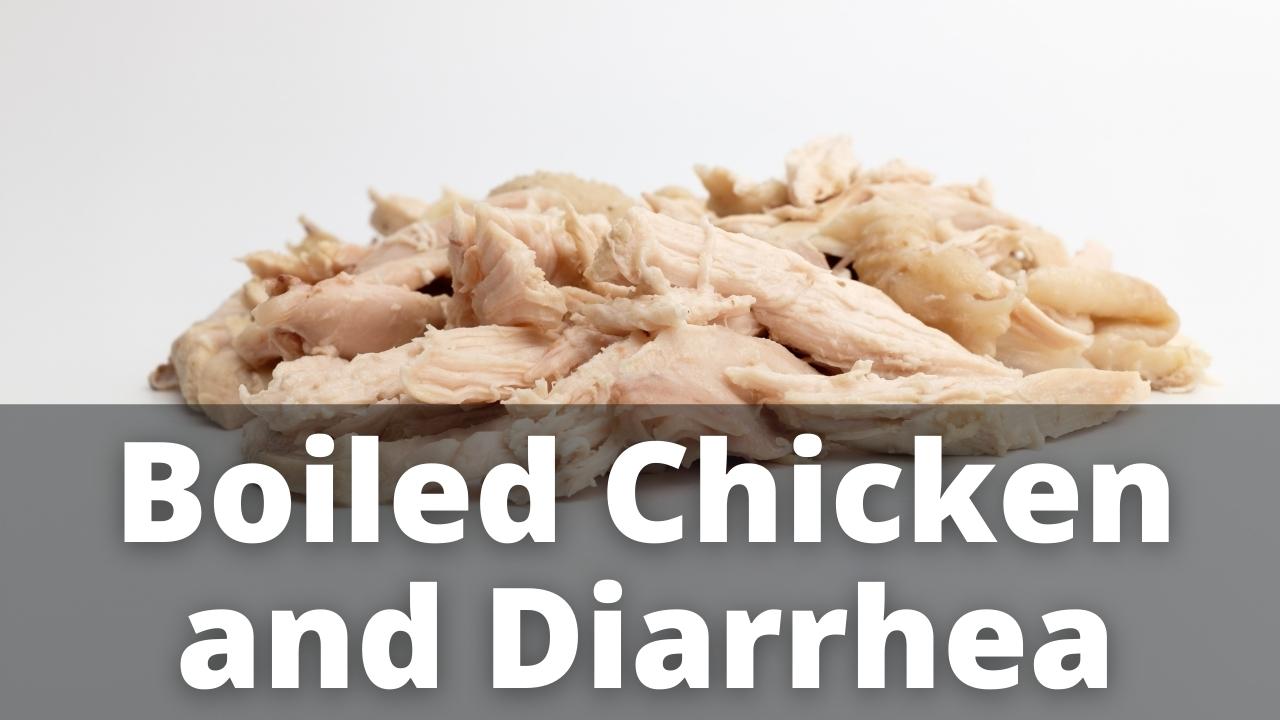
Can boiled chicken give my dog diarrhea?
It is possible that boiled chicken can give your dog diarrhea. In rare cases, it may be because your dog is not used to chicken or because of some additive or preservative in the chicken itself.
However, suppose your dog is given plain boiled chicken and gets diarrhea soon after. In that case, the most likely cause is a food allergy to chicken. It may be a sign that you should remove chicken from your dog’s diet altogether.
Nevertheless, in many cases, plain boiled chicken and plain rice are used to manage diarrhea. For instance, puppies with colitis might need to fast for a day and then be given boiled chicken and rice as a gentle food source while the inflammation in their stomach dies down.
So diarrhea because of boiled chicken is relatively rare. If it does occur because of chicken and rice, keep in mind that a dog can also be allergic to rice, although this is much rarer than chicken.
If you think your puppy might be allergic to the chicken, or is struggling with diarrhea after eating the boiled chicken, then consider trying some eggs instead, or a sensitive stomach dog food option. Taking your dog to the vet is also always encouraged, especially if diarrhea seems to be ongoing.
You might like to read our post, Dog is Pooping Jelly: (What To Do)
Or perhaps this one on the best way to manage your dog’s poop, Can You Put Lime on Dog Poop? (Answered)
Why does chicken give my dog diarrhea?
There are several reasons that chicken may be giving your dog diarrhea.
If you suspect a food allergy, your vet can help determine this with a serum IgE test or a food elimination trial. Food allergies to chicken proteins are one of the most common for dogs, although food allergies only represent about 10% of all allergies.
Diarrhea is usually only one symptom of a food allergy. Other common symptoms of food allergies include:
-
Itchy skin (pruritus)
-
Vomiting
-
Hyperactivity
-
Lethargy
-
Weight loss
-
Behavioral changes such as aggression
If chicken is part of an unbalanced all-meat diet, diarrhea may be the result. While amino acids in animal proteins are superior to those in plant proteins, it’s essential to understand that dogs need a variety of nutritional staples to meet their basic needs.
Chicken can also be responsible for secondary problems that could indirectly influence gut health. For instance, most farmed chickens are given enormous amounts of antibiotics, which furthers the issue of antibiotic-resistant bacteria.
Chicken is also much higher in omega-6 fatty acids than omega-3s. Omega-6s are vital for a functioning immune system. They help the inflammation response, but omega-3s (specifically EPA and DHA mainly found in fish or krill oil) help reduce that inflammation and prevent chronic inflammation. The ideal ratio of omega-6 to omega-3 is in the region of 4:1, while the proportion in chicken is around 17:1.
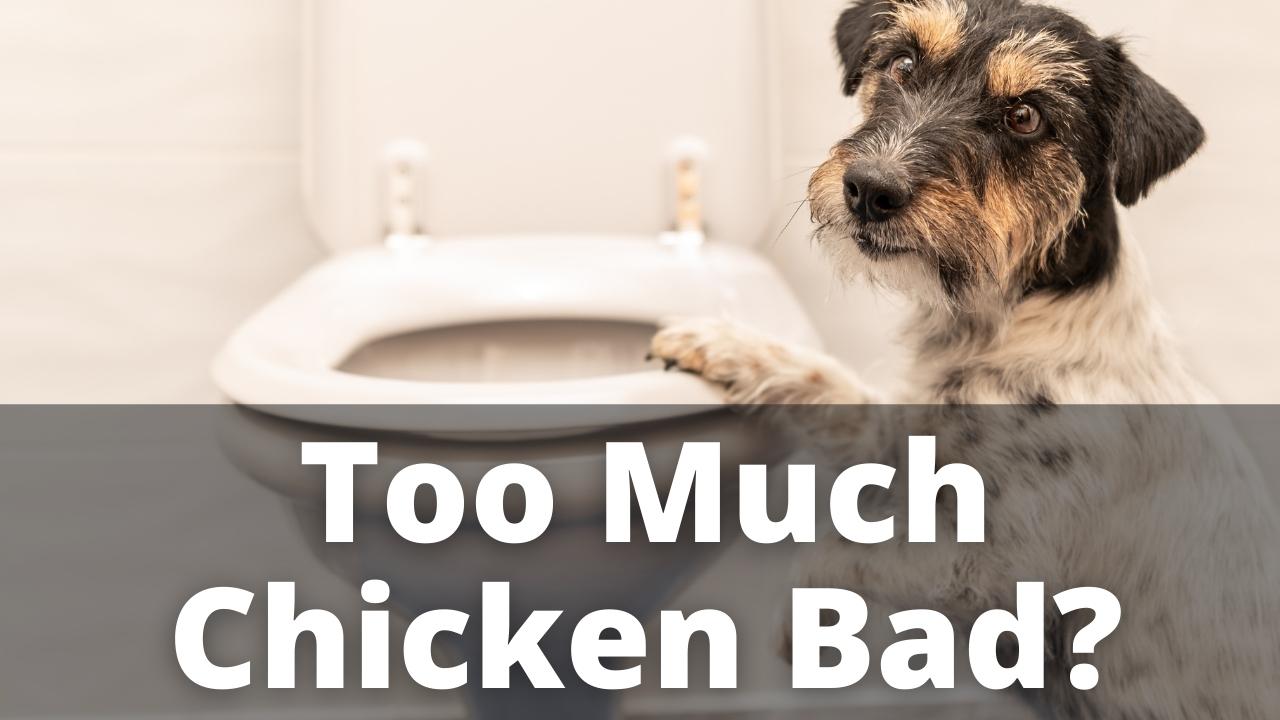
Is too much chicken bad for dogs?
Despite the risks mentioned above, chicken is a relatively good protein source for most dogs. However, too much chicken can be bad for them.
It’s important to understand that nutrition is not a one size fits all solution. There is no single diet that will necessarily be best for every dog. Chicken is a good protein source, with high digestibility and amino acid bioavailability.
However, some amino acids in chicken, such as Lysine, can be lost through the extrusion process in commercial dog food and will need to be replaced.
Chicken is a good protein source for many dogs because it is lower in purines, copper, and saturated fat than red meat like beef. Dogs who have allergies to beef may do better on a chicken-based diet.
Furthermore, some dogs are particularly sensitive to high levels of copper, such as Bedlington Terriers, Labradors, and Cocker Spaniels. Chicken may be better for these dogs since red meat and organ meat are generally higher in copper.
Some breeds like Dalmatians also have trouble breaking down the purines in red meat and do better on diets with a moderate to low amount of chicken. So for many canines, chicken does have a place in a balanced diet.
It’s very easy to feed too much chicken organ meats like liver or kidneys. While these organs are nutritious in small amounts, they also have high levels of nutrients that can cause problems for many dogs when fed in excess over long periods. This includes high amounts of vitamin A, copper, phosphorus, and purines.
So, a diet consisting mostly or only of chicken can lead to nutritional imbalances and various problems, including diarrhea.
Chicken on its own is not a complete or balanced source of nutrition, despite its benefits. Some dogs also have medical issues, which can lead to problems if they are given too much protein. For example, dogs with liver shunts have trouble metabolizing meat protein. So too much chicken can cause severe health problems.
Are you interested in reading our post, Can Dogs Have Store-Bought Chicken Broth?
Final Thoughts
Chicken can cause diarrhea in dogs, although it is not common. As a pet parent, it’s vital to be alert to our dogs’ individual dietary needs.
While chicken can be a great source of essential amino acids, it can also be a source of allergies or tummy upsets for some dogs, including diarrhea. Dogs with problems breaking down proteins, such as those with shunts, can be severely impacted by too much chicken.
Of course, chicken also needs to be handled carefully because of possible pathogens. In short, it is important to assess our dogs’ dietary needs carefully and understand that not every dog does best on the same diet.
Avoid fads or trends in dog diets and work with your vet and a nutritionist to determine your dog’s specific dietary needs.
If your dog does have a problem with diarrhea, you might be interested in reading our post on picking it up on grass, on walks or in the park.
Sources:
https://synapse.koreamed.org/articles/1041340
https://vcahospitals.com/know-your-pet/food-allergies-in-dogs
https://www.msdvetmanual.com/toxicology/copper-poisoning/copper-poisoning-in-animals

